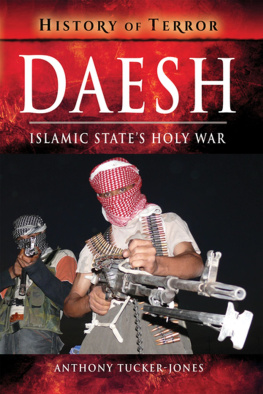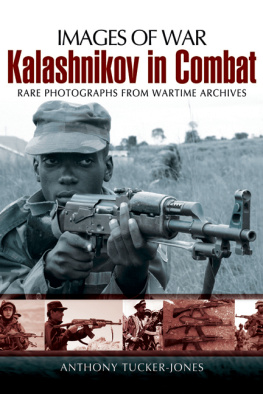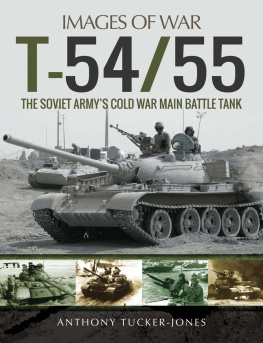
(Tohin Hamid)
First published in Great Britain in 2018 by
PEN AND SWORD MILITARY
an imprint of
Pen and Sword Books Ltd
47 Church Street
Barnsley
South Yorkshire S70 2AS
Copyright Anthony Tucker-Jones, 2018
ISBN 978 1 526728 81 4
eISBN 978 1 526728 82 1
Mobi ISBN 978 1 526728 83 8
The right of Anthony Tucker-Jones to be identified as the author of this work has been asserted in accordance with the Copyright, Designs and Patents Act 1988.
A CIP record for this book is available from the British Library All rights reserved. No part of this book may be reproduced or transmitted in any form or by any means, electronic or mechanical including photocopying, recording or by any information storage and retrieval system, without permission from the Publisher in writing.
Every reasonable effort has been made to trace copyright holders of material reproduced in this book, but if any have been inadvertently overlooked the publishers will be pleased to hear from them.
Pen & Sword Books Ltd incorporates the imprints of Pen & Sword Archaeology, Atlas, Aviation, Battleground, Discovery, Family History, History, Maritime, Military, Naval, Politics, Railways, Select, Social History, Transport, True Crime, Claymore Press, Frontline Books, Leo Cooper, Praetorian Press, Remember When, Seaforth Publishing and Wharncliffe.
For a complete list of Pen and Sword titles please contact
Pen and Sword Books Limited
47 Church Street, Barnsley, South Yorkshire, S70 2AS, England
email:
website: www.pen-and-sword.co.uk
INTRODUCTION: THE IRAQI WELLSPRING
The emergence of terror group Islamic State, or Daesh, created one of the greatest threats to global security in the 21st century. Born of the conflicts in Iraq and Syria, it carved out an Islamic Caliphate straddling both prostrate countries. Since then its acolytes have wantonly despoiled world heritage sites and conducted regular terror attacks against capital cities, killing irrespective of race, age, colour or creed. Like its predecessor, al-Qaeda, Daeshs most potent and insidious weapon is franchise terrorism. It has inspired a whole series of deadly wanabee terrorists who had carried out a wave of what can be best described as war crimes, killing innocent civilians.
Osama bin Laden, the late leader of al-Qaeda, dreamed of the return of the 7th-century Islamic Caliphate that once stretched across the Middle East and North Africa. Such aspirations were delusional in the face of the realities of geopoliticsor so everyone thought. Sunni al-Qaeda after it was driven from Afghanistan was superseded by its successor al-Qaeda in-Iraq. While the former had a very global anti-Western agenda, the latter was a much more regional player with an overtly anti-Shia stance. Similarly, sister organizations al-Qaeda in the Islamic Maghreb and al-Qaeda in the Arabian Peninsula also emerged as regional players tapping into the historic split between Shia and Sunni Islam.
While some commentators assessed that al-Qaeda was a generational movement that would eventually lose steam, few could have foreseen that it would morph into something far deadlier, or indeed that the Arab Spring would fail to address the simmering socio-economic discontent feeding militant Islam. In fact frustration over the failure of the Arab Spring antagonized the ShiaSunni split to newfound levels of violence.
The new boy on the block, known variously as the Islamic State of Iraq and Syria or the Islamic State of Iraq and the Levant abbreviated to Islamic State or IS, proved to be more than a worthy successor to bin Ladens original al-Qaeda. Experts rightly argue that it is not a state but a terrorist organization with an Islamist agenda; however, it managed to very successfully carve out a very disparate kingdom across the Middle East and North Africa firmly ruled by Sharia law.
One thing that is clear: Daesh thrived off the carcasses of failed states in an arc stretching from Libya to Yemen. Thanks to weak central governments the reality of an Islamist body politic taking power came to pass. Daesh in the summer of 2014 declared a caliphate in the territories of Iraq and Syria under its control. The Caliphates leader was called Caliph Ibrahim, better known as Abu Bakr al-Baghdadi. Western governments responded by treating IS as if it were a state, conducting airstrikes against military targets within the vast tracts of land IS had seized across Iraq and Syria.

Terrorism has blighted the Middle East since the Second World War. (via author)
The Caliphate gained a firm foothold in the Middle East (including the Arabian Peninsula), North Africa and Sub-Saharan Africa. In war-torn Syria Daesh continued to dominate the agenda and effectively paralyzed any Western desire to broker a peaceful solution between the rebels and President Assads regime. The group proved particularly adept at stealing recruits from other Syrian Islamist factions, most notably Jabhat al-Nura. It was a policy it repeated in Libya and Iraq.
The Caliphate capitalized on the ShiaSunni civil war and powerful regional players fuelled the conflict, with Saudi Arabia championing the Sunnis and Iran backing the Shia. In Iraq the Daesh victory in the north was almost certainly facilitated by the defection of the Sunni elements of the Iraqi armed forces and the flight of Shia recruits south. The very fact that the Iraqi military was not able to conduct a swift or decisive counteroffensive across the country was clear testimony to the division within its ranks. The Shia-dominated Iraqi government knew that there was no easy way to placate Iraqs disaffected Sunni minority even if many of them hated and feared Daesh. In the meantime the Caliphate continued to fill the vacuum.
Daesh was soon to find that conquering territory and running an effective administration were two entirely different things. Revenues from looted antiquities and oil sold on the black market did not prop up IS spending for long. All the time it was winning, recruits flocked to its banner, the first sign of defeat then its ranks became depleted. Daesh, despite its setback at Kobane in Syria, continued to launch attacks in Iraq. The boldness of these seemed to know no limits. Then slowly the Caliphate began to crumble under pressure from the Iraqi government and its Western allies. However, its ideology of hatred remained intact and the attacks in the West continued.
Disastrously for Iraq, while Washington had a very clear military strategy for bringing down Saddam Hussein, it exhibited an appalling lack of foresight when it came to overseeing the transition to a post-Saddam regime. As American political commentator Kevin Phillips noted. The supposed liberation of Iraq in 2003 unleashed guerrilla warfare and produced a massive anti-American surge in Islamic nations from North Africa to Indonesia. One side effect may have been to print recruiting posters for a generation of suicide bombers.
The presence of foreign fighters was first confirmed when Iraqi Kurdish militia supported by US Special Forces overran the Ansar al-Islam (The Partisans of Islam) base on 28 March 2008. Quite frankly it was a case of taking a sledgehammer to crack a nut as the operation involved around 8,000 Peshmerga Kurdish guerrillas. Despite these overwhelming numbers, Ansar fighters resisted at Dekon, Gulp and Vagorat as the Coalition forces approached their base. The Kurds suffered seventy-five wounded and twenty-four dead in just forty-eight hours. Although the operation was a success, only a handful of Ansar fighters were captured alive, including a Syrian and a Palestinian. Among the dead were Arabs from Yemen, Qatar and the United Arab Emirates; there were also some from undisclosed European countries. Captured documents showed links to Abu Sayyaf and Hamas.




















